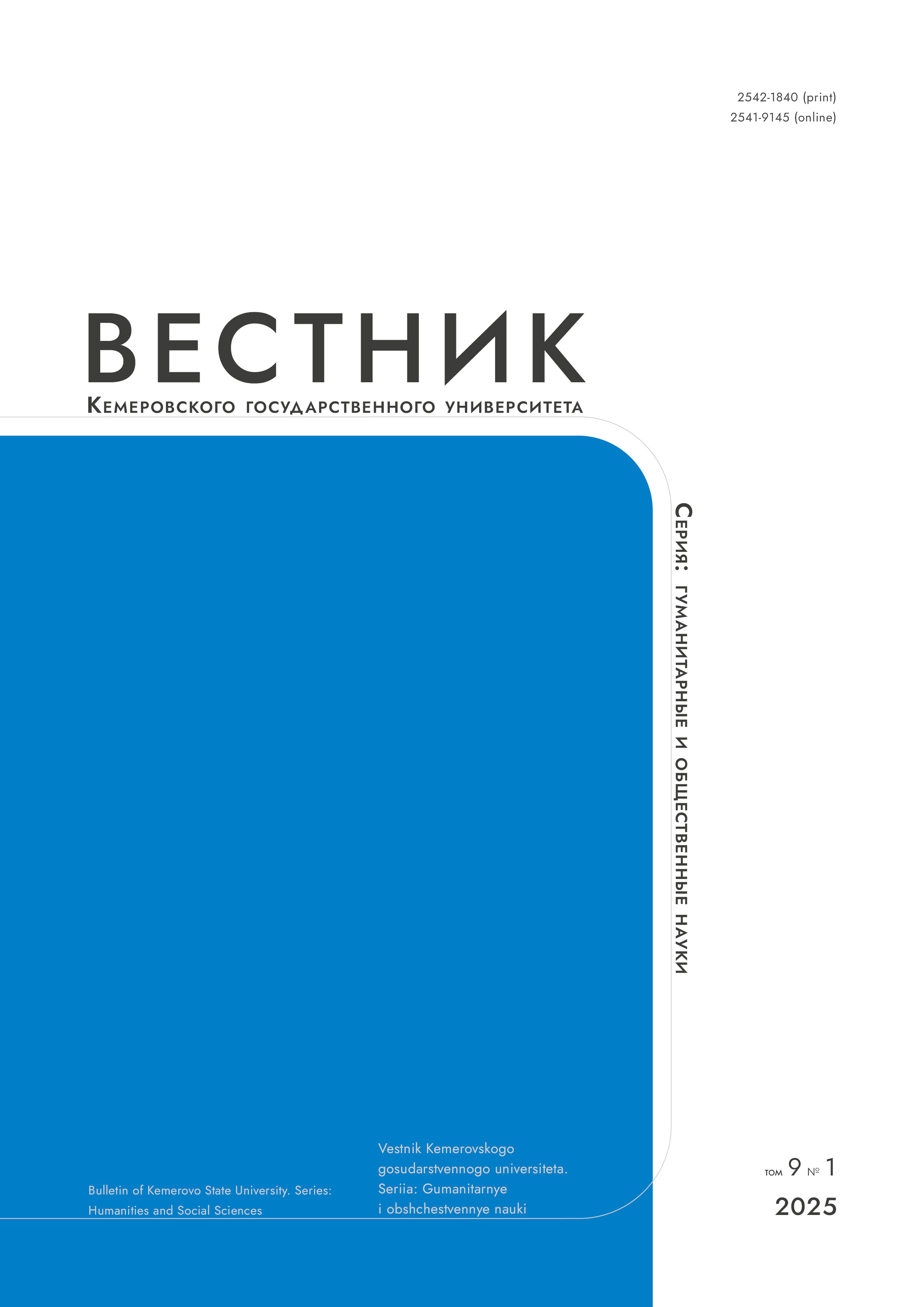from 01.01.2021 until now
Novosibirsk State Technical University (kafedra inostrannyh yazykov gumanitarnogo fakul'teta, docent)
employee from 01.01.2025 until now
Novosibirsk, Novosibirsk, Russian Federation
To claim universality, education studies have to integrate the academic heritage of all regions and cultures of the world and abandon historical ethnocentrism. The system of education adopted in the East offers an opportunity to design didactic concepts of the future for culturally pluralistic, but stable national states. The cultural approach popular in many Eastern countries made Japan, South Korea, Singapore, and China leaders in the field of education. The analysis of their success may help to identify key consolidating practices. This review covered 40 philosophical literature, pedagogical publications, analytical reports, and statistical reports provided by international organizations (OECD, 2022) and rating agencies (Times HE WUR, 2024; QS WUR, 2024) in three languages. The Eastern approach to education establishes a connection between learning and culture in a comparative and decolonial perspective, with politics and education being inextricably intertwined. The analysis yielded some guidelines that could fit into the Russian context while promoting the values of a multipolar world and encouraging young Russians to adopt a more active social position: 1) infrastructure provision; 2) personnel selection; 3) involvement of all subjects of the academic process as a guarantee of success; 4) interdisciplinary vector of modernization of academic content and methods. The results can be used to develop advanced training programs for teachers, to compile university textbooks for pedagogical disciplines, and to improve the state education policy. This comparative analysis was part of a complex comprehensive study to create a didactic cultural concept for general and higher education.
cultural approach, monocultural states, multicultural states, consolidation, monitoring of quality of education, education policy
1. Akkari A., Radhouane M. Les approches interculturelles en éducation: Entre théorie et pratique. Québec: Presses Universitaires de Laval, 2019, 304.
2. Zapesotsky A. S. Education: Philosophy, culturology, and politics. Moscow: Nauka, 2002, 456. (In Russ.)] https://elibrary.ru/tlexox
3. Bordovsky G. A., Pisareva S. A., Tryapitsyna A. P. S. I. Hessen's pedagogical heritage as a component of European cultural educational tradition. Human and Society, 2018, (4): 217–228. (In Russ.)] https://elibrary.ru/yxtowd
4. Sorokina T. M., Reshetova E. E. Cultural foundations of contemporary additional education. Izvestia of Samara Scientific Center of the Russian Academy of Sciences, 2014, 16(2-2): 494–499. (In Russ.)] https://elibrary.ru/sgrurl
5. Komura S., Kanai T. Education in the future and the SDGs: What is learning in which students exercise their agency? Academic Trends, 2018, 23: 38–43.
6. Okubo K., Yu J., Osanai S., Serrona K. R. B. Present issues and efforts to integrate sustainable development goals in a local senior high school in Japan: A case study. Journal of Urban Management, 2021, 10(1): 57–68. https://doi.org/10.1016/j.jum.2021.02.002
7. Naito M., Uchida M. Efforts of local governments: Efforts related to the UNESCO Learning Cities Global Network in Okayama City. Annu. Rep. Jpn. Soc. Learn. Sociol, 2019, 16: 24–27.
8. Dolin A. A. Humanities education in Japan: No large in small. History and Modernity, 2020, (3): 63–94. (In Russ.)] https://elibrary.ru/spxqei
9. Li K., Kaneko J., Komai N. Vital statistics in South Korea and measures to revitalize local cities. Geographic Space, 2018, 10: 199–208.
10. Park Y. The relationship between residential distribution of immigrants and crime in South Korea. Journal of Distribution Science, 2018, 16(7): 47–56. http://dx.doi.org/10.15722/jds.16.7.201807.47
11. Oh S. Efforts in social education from the perspective of multicultural education. Bulletin of the Graduate School of Education, 2021, 1: 57–65. (In Jap.)] URL: https://core.ac.uk/download/pdf/286927711.pdf (accessed 15 Dec 2024).
12. Kato M. Reality of employment permit system in Korea as seen from field survey: Brokers, pre-arrival debts, and harsh working conditions seen even in "Front Door" Acceptance. Mitsubishi Ufj Research & Consulting, Policy Research Report, 2021. (In Jap.)] URL: https://www.murc.jp/wp-content/uploads/2021/05/seiken_210514.pdf (accessed 15 Dec 2024).
13. Oh S. Study on the cooperation between the school and home regarding education for children of multicultural families in Korea: Multicultural education policies and efforts in Ansan city. Bull. Jpn. Soc. Soc. Educ., 2013, 49: 13–21.
14. Kim H. Multicultural phenomenon and multicultural education in South Korea. International Research Journal, 2023, (12). (In Russ.)] https://doi.org/10.23670/IRJ.2023.138.61
15. Banks J. A. An introduction to multicultural education. Boston: Allyn & Bacon, 2002, 161.
16. Banks J. A. Educating citizens in a multicultural society. NY: Teachers College Press, 2007, 199.
17. Oh S. Efforts for multicultural education in multicultural homes and families in South Korea: Focusing on trends in education policy. International Education, 2017, 23: 134–139.
18. Pairault Th. Formation initiale et développement économique. Perspectives chinoises, 2001, (65): 5–16. URL: https://www.persee.fr/doc/perch_1021-9013_2001_num_65_1_2624 (accessed 15 Dec 2024).
19. Billioud S., Thoraval J. Le sage et le peuple. Paris: CNRS, 2014, chapitres 2 et 3, 55–142.
20. Elizondo S. "C’est pour ton bien": étude sur les expérimentations éducatives se réclamant d’un traditionalisme culturel en Chine contemporaine. Linguistique. Université Paris Cité, 2021. URL: https://theses.hal.science/tel-03650506v1 (accessed 15 Dec 2024).
21. Billioud S. "Confucianisme", "tradition culturelle" et discours officiels dans la Chine des années 2000. Perspectives chinoises, 2007, (100): 53–68. URL: https://www.persee.fr/doc/perch_1021-9013_2007_num_100_3_3552 (accessed 15 Dec 2024).
22. Wu C., Saenghong N., Jatuporn O. The study of multicultural education and teachers’ multicultural teaching competency in Singapore and South Korea. rEFLections, 2023, 30(3): 887–912. https://doi.org/10.61508/refl.v30i3.268950
23. Astafieva E. M. Singapore: Education system in the context of nation-building. Southeast Asia: Actual problems of development, 2012, (18): 194–207. (In Russ.)] https://elibrary.ru/pweuhb
24. Liu W. C. Singapore’s approach to developing teachers: Hind-sight, insight, and foresight. London: Rourledge, 2021, 214. https://doi.org/10.4324/9780429433641
25. Tan O. S., Liu W. C. Championing the teacher factor. Teacher education in the 21st century: Singapore's evolution and innovation, eds. Tan O. S., Liu W. C., Low E. L. Springer, 2017, 33–43. http://dx.doi.org/10.1007/978-981-10-3386-5
26. Elkina I. M. Modern philosophy of education: Singapore’s experience. Bulletin of the Russian Philosophical Society, 2021, (3-4): 195–202. (In Russ.)] https://doi.org/10.21146/1606-6251-2021-3/4-195-202
27. Elems-Ikwegbu H. N. Evaluating basic education in Singapore: Trends and dynamics. Syntax Admiration, 2023, 4(4). https://doi.org/10.46799/jsa.v4i4.583


















